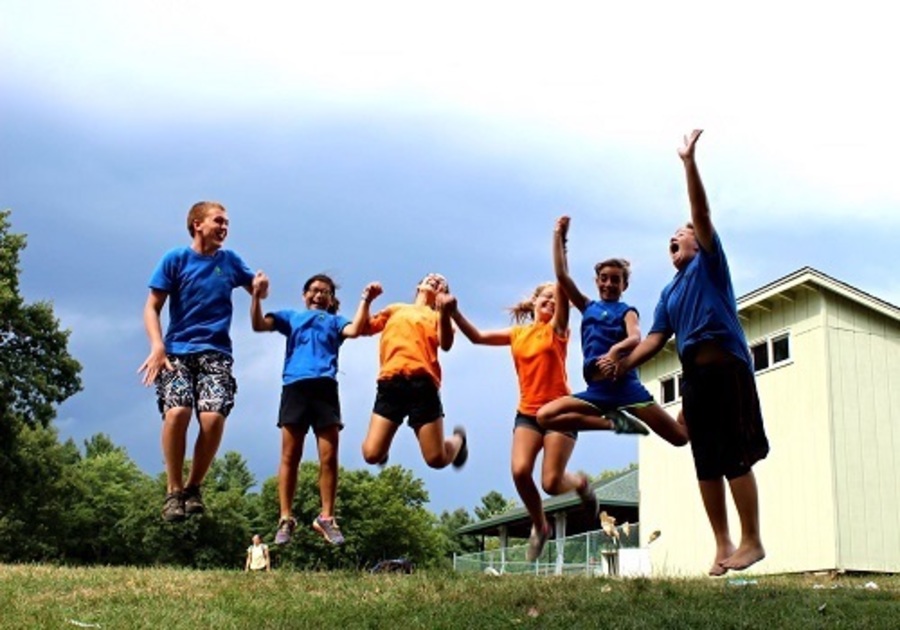Why Day Camp? Children learn life skills that become habits of the heart.
Another mother wrote that the family was on a ski trip. The son got to the top of a steep hill and started to panic. The mom said, “What would you do if you were at camp?” and he proceeded to engage himself in positive self-talk that was part of the camp culture: “It may take time, it may be hard; but stick with it, and you’ll be fine!” He skied down with a huge sense of accomplishment and perseverance.
It’s tough to be a kid these days. It’s tough to be a parent. In a society where the nature of the family, the workplace, and the community have changed dramatically, we can no longer assume that the natural process of growing up will provide children the experiences and the resources they need to become successful, contributing adults. In sharp contrast to the traditions of growing up in the 50s and 60s, today we live in the first moment when humans receive more of their information second-hand than first! We are in a climate where it is harder to know what we need to survive, so drawing on experiences that give children healthy alternatives and opportunities to instill capabilities, the hallmarks of thriving, is the greatest gift you can give a young child.
Does it really matter if my child doesn’t go to day camp, especially since she will go to overnight camp in a few years? She is only four years old — why does she need day camp?
Camp provides one of the very few links with a world larger than the consumer culture we inhabit — and day camp is one important choice in a quiver of options. The camp experience helps children and youth develop an appreciation of their place and their responsibility in a much larger universe. A preschooler — or even an older child who might be reluctant to go to overnight camp — can join a community that is created especially for her to practice growing up. Why wait until age ten when the benefits of feeling connected and being able to contribute and navigate at an earlier age can be reaped? Under the supervision of inspiring guides and passionate coaches, children can feel successful and make new friends while having the time of their lives; they can experience belonging and contribution; they can have a sense of consistency and predictability in times of turbulence and change.
Day camp can begin as early as age three, and is geared to children who get to experience camp and still return home each evening! They have the best of both worlds — the camp community which is built exclusively for kids and their own home which provides the security they need at a tender age.
One day camp parent said, “While my children and I are constantly bombarded by the news which is focused on what is wrong with the world, camp is a living example of what is right.”
Day camp is a terrific first experience. Reminiscent of less complicated days, when people connected with nature, thrived on inter-generational relationships, and made new discoveries, everything is designed and scaled to ensure that children feel included, cared about, and capable. Beginning camp at an early age provides important advantages.
Camp is the best demonstration of moral and spiritual order — democracy is the core purpose. Children learn life skills and behaviors that become habits of the heart. While many then move on to overnight camp, others will be content to continue the day camp experience: after all, there is a camp for everyone — and that might well be day camp!
To learn more about camp and child development, please visit the American Camp Association’s family-dedicated Web site: www.ACAcamps.org or call the toll-free number 1-800-428-CAMP (2267).
Marla Coleman is the parent liaison at Camp Echo in Burlingham, New York. A past board chair of the American Camp Association, she is a co-owner of Coleman Family Camps, which includes Camp Echo and Coleman Country Day Camp.
About ACA:
The American Camp Association® (ACA) is a national organization with more than 12,000 individual members and 3,000 member camps. ACA is committed to collaborating with those who believe in quality camp and outdoor experiences for children, youth, and adults. ACA provides advocacy and evidence-based education and professional development, and is the only national accrediting body for the organized camp experience. ACA accredits approximately 2,400 diverse camps nationally. Accreditation provides public evidence of a camp’s voluntary commitment to the health, safety, and overall well-being of both campers and staff. For more information, visit ACAcamps.org.
Originally published in CAMP Magazine. Reprinted by permission of the American Camp Association. ©2005, American Camping Association, Inc.



